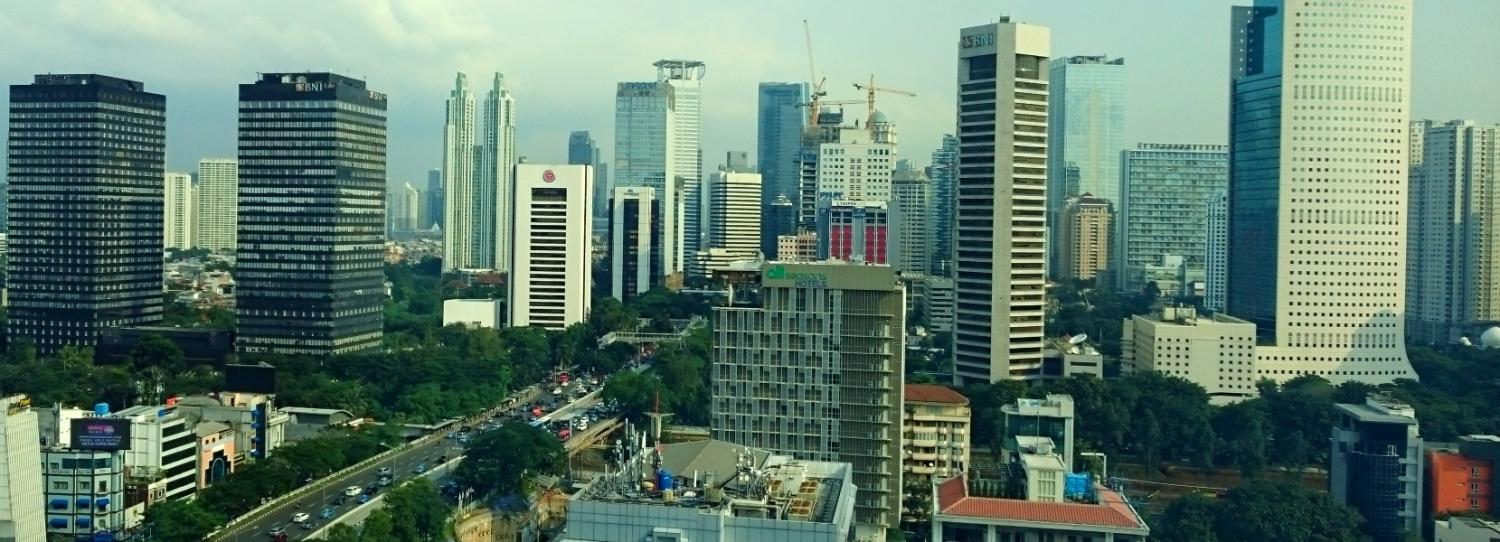The heavy loss of incumbent Jakarta Governor Basuki ‘Ahok’ Tjahaja Purnama to former education minister Anies Baswedan signals rising intolerance and demonstrates the influence of hard-line Muslim groups in Indonesia, spelling trouble for President Joko ‘Jokowi’ Widodo and moderate Indonesians of all persuasions. That Ahok failed to run a savvy and cohesive campaign has only amplified the shortcomings of Jakarta’s moderate class.
Ahok's loss sees a return to leadership of the establishment class. Ahok has spent much of his career jumping between political parties before going independent — only to re-form an alliance last year with the ruling Indonesian Democratic Party of Struggle (PDI-P). The success of volunteer team Teman Ahok ('Friends of Ahok'), formed in 2015 after the governor committed to running for a second term, seemed to indicate a groundswell in grassroots support. Hundreds of volunteers hit the streets and shopping malls of the city and received a million signatures of support from eligible voters by June last year.
But hose efforts were squandered by organisers, and after the first round of voting in February the group appeared to run out of energy. ‘We have been helping Ahok for two years non-stop. We’re starting to feel a bit tired,’ Teman Ahok founder Singgih Widyastomo told reporters, ‘it is the political parties endorsing the candidate pair that should be on the front line.’
The failure of the group, whose members were reportedly upset to learn Ahok had teamed up with the PDI-P, will surely be examined by future candidates looking to return progressive and meritocratic government to the city. Teman Ahok was not effectively used by the official campaign once Ahok was on the ballot, and the group failed to maintain campaigning momentum or tailor its message, particularly after the high-profile blasphemy case broke out.
Meanwhile, PDI-P spent months teasing a candidacy from popular Surabaya mayor Tri Rismaharini which, in retrospect, wasted valuable time that could have been used to establish a strong foundation for the Ahok campaign, making it easier to weather the blasphemy storm. It is one thing to have a candidate attending court each week in a high profile case; it is another thing entirely to have the machinery of the country’s ruling party fail to compensate for that.
The Anies win is now being linked to another tilt at the presidency for retired general and Great Indonesia Movement Party (Gerindra) boss Prabowo Subianto in 2019. Subianto fell 8 million votes short of Jokowi in 2014. Ominously, deputy governor elect Sandiaga, himself part of Indonesia’s elite ranking alongside the country’s richest businessmen, repeatedly declared while on the campaign trail that Gerindra would continue to support Jokowi ‘until 2019’.
The hardline Muslim population will be reinvigorated by this result - after all, if a candidate hanging around 11% can go on to win an election after meeting with firebrand clerics, which savvy political operator would not seek to replicate that tactic? Regardless of who eventually nominates against Jokowi in 2019, the campaign is set to export divisive unrest from Jakarta to the rest of the country. Prabowo has already sought to reframe the role of the Islamic Defenders Front (FPI) in the campaign. Despite the fact that FPI led all major demonstrations against Ahok and was the main voice calling for his imprisonment on blasphemy charges, Prabowo maintains the group is on the side of ‘unity.’
Speaking to Bloomberg last week, Prabowo defended FPI leader Habib Rizieq, saying: ‘Rizieq and the Muslim community, just like us, have defended the interests of the Indonesian public, upheld justice and saved our democracy and our future.’ Anies is also in the business of pitting the Muslim majority against minorities in the city, telling Bloomberg: ‘We have to show that the Muslim community is the one who upholds peace and unity.’
Whether Anies and Sandiaga will govern along these divisive lines remains to be seen, but it clearly sets a poor standard for repairing the racial and religious fractures still bubbling just beneath the surface of the city.
The lack of a corresponding movement in support of a moderate and tolerant Jakarta in the months following the blasphemy charges should have indicated there was not a silent majority of middle class and millennial voters who would make their voices heard at the ballot box. Still, the landslide result comes as a shock after weeks of polls showing a tight race. An overhaul of polling practices and better analyses tailormade for a city as bizarrely and brilliantly diverse as Jakarta is needed to more accurately reflect the pulse of the country as we hurtle toward elections in 2019.
Photo by Flickr user Yasunari Goto.

